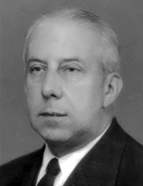

It follows from the above that the two fundamental cornerstones of Caetano Beirão ’ s thought were, from a theoretical point of view, the teachings of St Thomas Aquinas on the origin of sovereignty, accepted and defended by the French ‘right’, namely Maurras, understood not in its abstraction, but in its materialisation in time, in this case, in the History of Portugal.
It follows from the above that the two fundamental cornerstones of Caetano Beirão ’ s thought were, from a theoretical point of view, the teachings of St Thomas Aquinas on the origin of sovereignty, accepted and defended by the French ‘right’, namely Maurras, understood not in its abstraction, but in its materialisation in time, in this case, in the History of Portugal.
In other words, abstraction and materialisation are intertwined in a single whole for the understanding of historical development and, of course, in the assessment of the political situation at the time. Despite his support for Salazar and Salazarism, he believed that the latter ’ s mission would only be complete with the restoration of a pure monarchy, i.e., one detached from the ideas and ideals of the French Revolution and Freemasonry that had found an echo in liberalism, since only this corresponded, as has been emphasised, to the national identity that had been affirmed over the centuries.
However, alongside the praise of the past, he adopted ideas that were typical of contemporary times. He considered History to be a science, belonging to the framework of moral sciences, like Sociology and Politics, admitting the existence of its own laws, with a character of permanence, objectivity and truth. The notion of historical truth stemmed from the concept of society as an organism governed by laws that were considered as true as those governing the stars, animal life, the reaction of components or market supply and demand. As ‘great verified hypotheses’ ( Uma campanha tradicionalista [A traditionalist Campaign] , p. 120), permanent, universal and irrefutable, they ‘framed’ the facts, which were indeed changeable and ephemeral. Thus , History, corresponding to the life of society, reported the facts without ignoring the laws that governed it. The historian would , therefore , necessarily assume a critical and non-neutral attitude towards what happened, rejecting arbitrariness when analysing it. Reversing this way of thinking to what he had said about the miracle of Ourique and the Cortes de Lamego, coherence led him to repudiate its mythical character in favour of accepting it as a real fact. This would be Caetano Beirão ’ s understanding, once again linking tradition and modernity.
This work is financed by national funds through FCT - Foundation for Science and Technology, I.P, in the scope of the projects UIDB/04311/2020 and UIDP/04311/2020.
